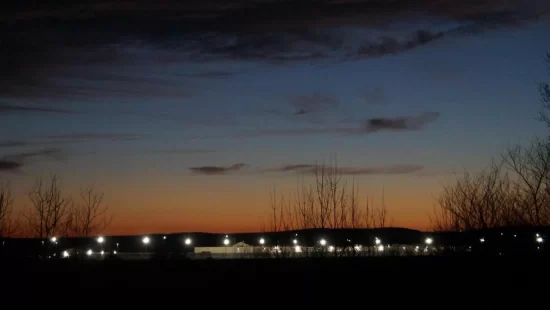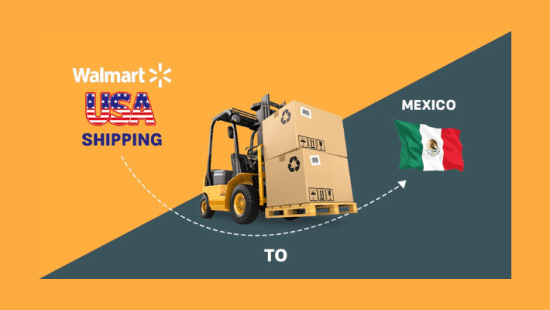Why Trump is targeting Canada’s land, water, and resources — and what it means for North America’s future.
As Canadians head to the polls today to choose between two starkly different candidates for Prime Minister, a central question looms: what does Donald Trump truly want from Canada?
Tensions between the U.S. and Canada have grown dramatically during Trump’s second term. Key flashpoints include trade tariffs, resource disputes, and inflammatory rhetoric about turning Canada into the “51st state.”
One symbol of this fraught relationship is Machias Seal Island—a fog-shrouded, uninhabited rock off the coasts of Maine and New Brunswick. It lies in a 717 km² “gray zone,” jointly fished by Canadians and Americans under a decades-old agreement. Both nations claim the territory, and the waters around it are highly valued for lobster fishing.
John Drouin, a veteran U.S. lobster fisherman, describes the chaos of competing with Canadian boats: “People have lost body parts. It’s a war zone out there.” Disputes over lobster traps and accusations of rule-breaking on both sides have created real tensions among working fishermen.
While the gray zone was long seen as a manageable quirk in U.S.-Canada relations, Trump’s second presidency has amplified minor disputes into major geopolitical friction. He’s imposed steep tariffs on Canadian goods and repeatedly referred to Canada as the “51st state.” His administration has floated ideas like diverting water from British Columbia to drought-stricken California, raising alarms about U.S. designs on Canadian resources.
The Canadian election is largely a response to this mounting pressure. Liberal leader and current interim Prime Minister Mark Carney is a former banker who presents himself as the steady hand needed to resist Trump’s threats. His rival, Conservative Pierre Poilievre, has drawn unfavorable comparisons to Trump himself, which may be hurting his polling.
Beyond politics, the U.S. and Canada are clashing over valuable natural resources. Canada is rich in oil, rare earth minerals, timber, and freshwater—assets Trump seems increasingly focused on. In a closed-door meeting, former Prime Minister Justin Trudeau reportedly warned that Trump’s talk of annexation is rooted in economic motives. “They know what we have and they want to benefit from it,” he said.
The conflict has escalated beyond economics. In Quebec, a historic cross-border library that once symbolized U.S.-Canada unity now requires Canadians to clear U.S. immigration before entry, supposedly due to drug trafficking concerns. In the Great Lakes region, the U.S. has signaled it may withdraw from environmental treaties with Canada.
Trump’s attitude toward the U.S.-Canada border has also changed. In March, he criticized the very idea of the international boundary, calling it an “artificial line” that “makes no sense.”
This dramatic shift in tone has provoked strong responses from Canadian leaders. Trudeau accused Trump of aiming to destroy the Canadian economy to pave the way for annexation. Carney has echoed this concern, declaring the end of the historic “special relationship” between the two nations.
Observers are divided on Trump’s true intentions. Some, like Canadian journalist Jordan Heath-Rawlings, believe Trump genuinely wants Canadian land and resources—especially the Arctic, which is gaining strategic importance. Others, including former Trump national security adviser John Bolton, argue Trump has no clear philosophy or plan. “He has ideas but no strategy,” Bolton said.
Still, many believe the damage to U.S.-Canada relations may be long-lasting. Professor Michael Williams of the University of Ottawa suggests Trump’s vision reflects a retreat from global dominance in favor of building a continental fortress. That would mean prioritizing control of neighboring territory and resources.
“This is about securing key chokepoints and maximizing access to natural wealth,” Williams said. It’s a perspective with historical roots, echoing the 19th-century Monroe Doctrine that aimed to define separate spheres of influence for Europe and the Americas.
While Trump’s rhetoric may not yet reflect formal policy, its consequences are already being felt. Canadian consumers are boycotting American products, and tourism to the U.S. has declined. In response, Canadian politicians are taking harder stances. “We’re not looking for a fight, but Canada is ready,” said Heath-Rawlings.
The idea that U.S.-Canada relations are beyond repair is no longer just speculation. “The old partnership based on deep economic integration and close military ties is over,” Carney declared recently.
Historically, the U.S. and Canada have experienced periods of territorial dispute, including during the War of 1812 and the 1859 “Pig War.” But such tensions had become historical footnotes—until now.
With trust between the two nations eroding and inflammatory rhetoric on the rise, the future of one of the world’s closest alliances hangs in the balance.








